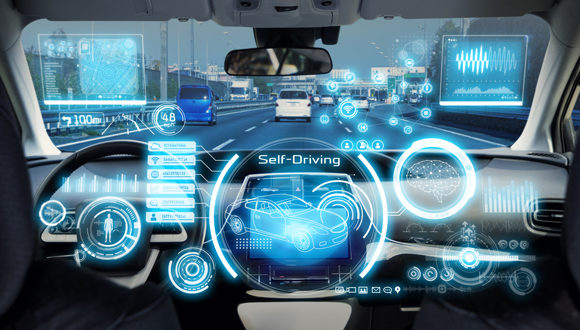
What will life look like in 2030?
From surgery to household tasks, humanity is about to see its daily life transformed. Prof. Irad Ben-Gal is planning for the biggest unknowns of our future.
Only twenty years ago, connecting to the internet meant sitting next to a desk and sorting through various cables, when downloading a photo could take ten minutes or more. Today, it seems like everything happens online – it’s where we find our friends and where elections and revolutions are won and lost.
But as we spend more and more of our lives in cyberspace, the question is: what’s next? The rate of change and growth is so rapid, even ten years can make a huge difference. Humanity’s biggest “unknown” is the immediate future: what can we do to foresee and cope with the next set of changes and challenges?
To answer these questions, Tel Aviv University partnered with Stanford University to create the Digital Living 2030 program. It will connect engineering students from Israel and the U.S. to lead the development of infrastructures, processes, methods and algorithms, hardware and software components, to create and support this new world.
When our digital self goes grocery shopping
According to Prof. Irad Ben-Gal, from the Department of Industrial Engineering, a founder of the Digital Living 2030 project, we’ll see many changes over the next ten years. Some for the better, some, potentially, for the worst.
What are the biggest changes waiting around the corner?
“In general,” Prof. Irad Ben-Gal said. “A lot of sectors will see accelerated progress in the coming decade, such as autonomous transportation, personal digital medicine, smart cities, industry (robots and artificial intelligence), virtual environments and applications that affect our personal lives.

“On a personal level, we will witness a more complete integration between our digital world and our physical world. People will live simultaneously in both worlds when their digital self will perform different tasks for them – it will learn, make decisions (in collaboration with other digital agents), perform social interactions, and more.”
What about our lives will be better by 2030?
“In principle, a large section of society will benefit from having a better life: personalized services such as autonomous transportation, personalized medicine, a longer and healthier life, increased leisure time, more efficient handling of information overload, and a variety of new and interesting professions.”
What are the biggest problems we’ll have to deal with?
“First and foremost, there is a danger of widening economic and social gaps between different people – experts and laymen in the digital world, between the rich and the poor, between developed and developing countries, between technologically advanced and non-technological sectors…
But we’ll have to cope with all of this just like previous generations had to cope with their own technological leaps forward. Every innovation introduces new risks, from the discovery of fire and stone tools, to dynamite, to artificial intelligence.”
What about 2130? On the basis of what you know today, what will life look like in a century?
“Nothing is truly certain, of course, but there’s one thing I’m sure of: the integration of the digital world with the physical world will be complete.

“The individual will not only be a physical entity represented in digital worlds (as we are today represented in social networks) but a perfect dual entity. The digital entity will be aware, make independent decisions, learn on its own, work in parallel with the physical entity and be rewarded accordingly, and will contain elements of emotions and awareness that don’t exist today.”
So, what are you most looking forward to in the coming decade, or the coming century? And how will you prepare? Are you looking forward to outsourcing your grocery shopping to your digital avatar or dreading having to be even more involved in cyberspace than you already are?
One thing’s for sure: the engineers taking part in Digital Living 2030 will do their best to make sure we’re as ready as it’s possible to be.
